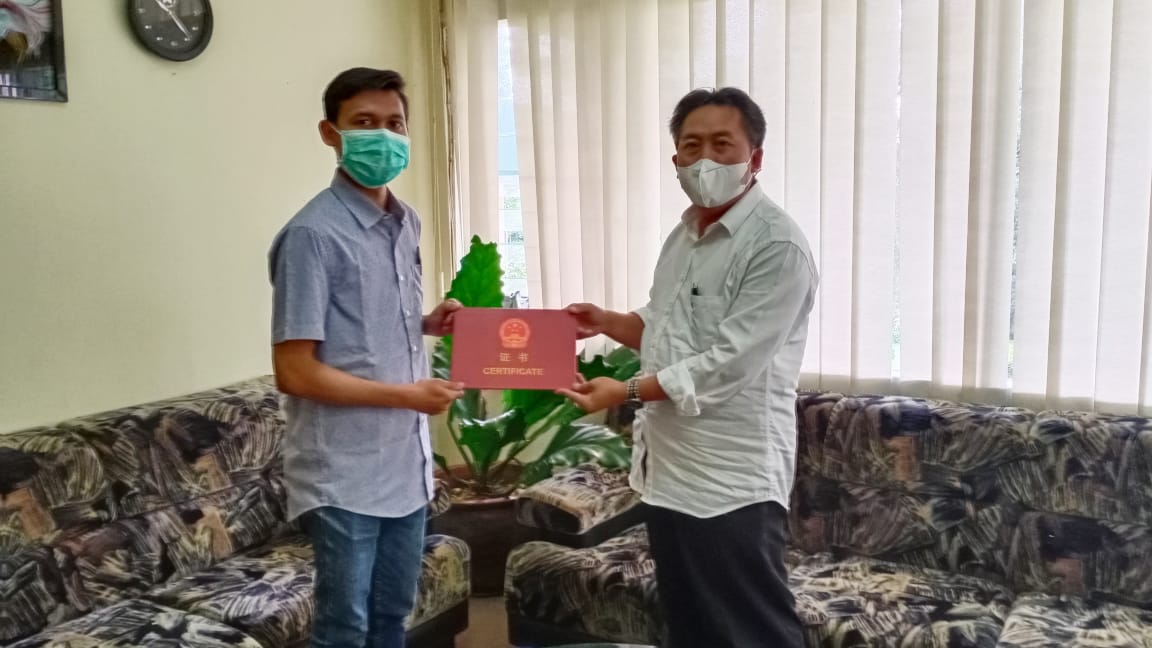During Sept – Nov, 2021 researchers at Indonesia Research Institute
for Tea and Cinchona (IRITC) attended on two online seminars or training held
by National Academy of Forestry and Grassland Administration (NAFGA) of China,
sponsored by Ministry of Commerce of the People’s Republic of China. The names
of seminars are Natural Protected Areas Management
and Biodiversity Conservation for the Belt and Road Initiative Countries
on Sept.15th – Sept.28th, 2021 and Seminar on Forestry
Addressing Climate Change and Sustainable Development for the Belt and Road
Initiative Countries on Oct.20th – Nov.2nd, 2021. There
are more than 10 countries who joined as participants on this seminars, i.e. Zambia,
Sri Lanka, Malaysia, Myanmar, Philippines, Thailand, Ethiopia, Nigeria, South
Sudan, Benin, Kenya and Malawi.
Tea plantation in Indonesia mostly planted near and bordering in forestry or protected area. Small tea planted area in forestry managed by tea smallholder through intercropping system. Tea plantation have important functions on biodiversity management and environmental or ecological conservation especially for community who living in low land area such as urban and city areas. While nowadays, tea plantation in Indonesia has face of climate changes challenges too.
Climate change in Indonesia produce stronger and more frequent El Niño/La Nina events and can caused exacerbate drying and/or flooding trends and could lead to decreased food production and increased hunger. The sea level rise in coastal area are making more people at risk of flooding and seawater intrusion. Biodiversity and ecosystem services also threatened, including in Forestry, Agriculture, Fishery and Plantation ecosystem.
Overall until October 2021, the CAT rates Indonesia’s climate targets and policies as “Highly insufficient”. The “Highly insufficient” rating indicates that Indonesia’s climate policies and commitments lead to rising, rather than falling, emissions and are not at all consistent with the Paris Agreement’s 1.5°C temperature limit. It showed that we, Indonesia still need big effort and work hard together to achieve more ambitious NDC and REDD+ mitigation targets according to Paris Agreement Goals together with global community on combating climate change and its impacts.
Climate Change has become Indonesia, our world and earth challenges, so Sustainable All Resources Management (Forestry and Plantation) can be a way together to anticipate it to better economy, social and ecology ecosystem for our generation in the future generally, and for Indonesia tea industry ecosystem specifically. Tea plantation urgently needs to mitigating and adapting to climate change impacts.
The program materials were very comprehensive and shared many best practices that can be implemented on other countries. This seminar also designed in the form of lecture session from great speakers, on-site learning, and also virtual tour experience/video about China cultures at weekend time. Countries presentation as the last activity of this seminar has become an incredible and memorable moment for us to learn and share about the culture and development of forestry and climate change action program from other countries. In Pandemic era and in the new normal era, scheme like this seminar is very convenient. This seminar has given many beneficial for us professionally and personally and open collaborative R&D action in the future.
Kralawi Sita
Researcher


